No products in the cart.

In a speech in London at the Chatham House on February 26, 2015, the former Nigerian military Head of State and dictator, Muhammadu Buhari described himself as a converted democrat as he endeared himself to Nigerians and the international community in the race for the 2015 elections that would take place the next month.
Buhari said in that speech that while he did not regret his actions as a military leader, he took full responsibility for whatever happened under his watch, including the failed kidnap of Umaru Dikko which remains Nigeria’s most diplomatic blunder. Furthermore, the Katsina-born retired general said he could not change the past but could change the present and the future as he threw his hat in the ring at the fourth time of asking.
Of course, a majority of Nigerian voters believed him and some of the prominent ones campaigned hard for him, not minding his antecedents. They neglected history and rode on the waves that as a hard-stance retired general, Buhari would fight corruption, end insurgency (as he had done in the ‘80s) and set Nigeria on the right path of productivity as he berated subsidy, claiming that it was a farce. Buhari even promised to end terrorism and that the Goodluck Jonathan-led federal government was Boko Haram itself.
Buhari first came to power as a 41-year-old major-general through a military coup on December 31, 1983, overthrowing the democratically elected government of President Shehu Shagari. His regime which lasted for 19 months and 27 days was marked by authoritarian policies which included strict decrees that restricted press freedom and civil liberties, such as Decree 4, which criminalised any criticism of the government.
His War Against Indiscipline campaigns to stamp out corruption and instil discipline were noted for their severity and disregard for human rights.
Faced with a collapsing economy, Buhari implemented austerity measures, redesigned the naira and closed the borders; but these policies were deeply unpopular.
On August 27, 1985, Buhari was overthrown by his Chief of Army Staff, Major-General Ibrahim Babangida and would spend the next three years in house arrest.
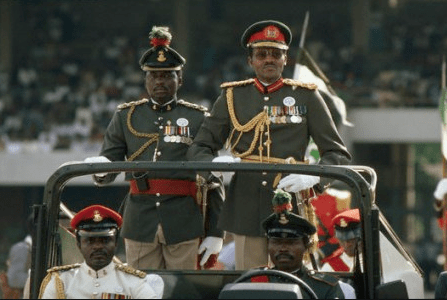
After his release, Buhari entered Nigeria’s political scene with the advent of the Fourth Republic and contested for the Nigerian presidency three times, but he failed to win against the ruling People’s Democratic Party in 2003, 2007, and 2011. In 2015, at the fourth time of asking, he would make history and unseating the ruling party as an opposition. This time, not through guns and bullets, but by the ballots.
Meanwhile, the Human Rights Violations Investigation Commission (HRVIC) – popularly referred to as the Oputa Panel which sat for two years and 11 months – recommended that General Muhammadu Buhari, alongside Ibrahim Babangida and Abdulsalami Abubakar, should apologise for the crimes he committed as Head of State. More than 20 years after submitting this report, the Nigerian government has yet to implement the Commission’s findings.
Anyway, Muhammadu Buhari was sworn in as Nigeria’s fourth president in the Fourth Republic since the return of democracy in May 1999 and he repeated some of the actions he did as a military head of state and dictator which mirrored his authoritarian past.
Contents
The Military Returns (1983-1993)
On December 31, 1983, the army struck again. This time, the justification for military intervention was the blatant corruption, economic mismanagement and the alleged incompetency of the Shehu Shagari-led civilian government. After the fall of the Second Republic, the succeeding Muhammadu Buhari-led military regime subsequently declared war on indiscipline and Nigerians would suffer for another 15 years of draconian and repressive rule emboldened with decrees interspersed with the June 12 annulment and the short, ineffective Interim National Government of Chief Ernest Shonekan in August 1993.
On January 1, 1984, Major-General Muhammadu Buhari made his maiden broadcast as Nigeria’s new Head of State. He would be the fifth military man to assume power.
If the Shagari administration was a frying pan, the Buhari regime was fire.
It was popularly known as the Buhari/Idiagbon regime because of the enormous power that Buhari’s deputy, Major General Tunde Idiagbon, the chief of staff at Supreme Headquarters, was thought to possess. The regime described itself as an offshoot of the previous military government of Generals Murtala Muhammed and Olusegun Obasanjo.
The Supreme Military Council (SMC), comprised of Major-General Muhammadu Buhari and 19 other members, came into power on January 3, 1984. Buhari then placed some senior political figures of the Second Republic in detention and held them accountable for the previous civilian administration’s economic excesses.
Some organisations were restricted, including the Nigerian Medical Association, which was proscribed, and the National Association of Nigerian Students. Buhari also issued two decrees that limited press freedom and stifled opposition to the administration.
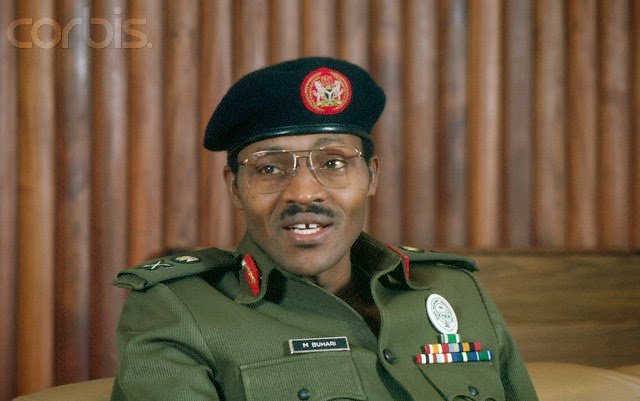
Decree No. 4 prohibited any journalist from publishing anything that could be embarrassing to a government official. Under the decree, two journalists, Tunde Thompson and Nduka Irabor were found guilty.
Decree Number 2 provided the Chief of Staff, Supreme Headquarters, the authority to hold anyone deemed a security danger for up to six months without charge or trial. Special military tribunals superseded the courts while the National Security Organisation (NSO), the state security organisation, was given more authority.
War Against Indiscipline
The Buhari/Idiagbon regime also initiated efforts to address “indiscipline” issues related to public decency, environmental sanitation, corruption, smuggling, and disrespect for flags and national anthems, among other issues. The regime proclaimed a War Against Indiscipline and outlined appropriate ways to conduct oneself in public, such as the obligation to form lines at bus stops.
However, the state of the country’s economy worsened. A comprehensive set of austerity measures was unveiled by the government. It imposed harsh import limits and high fines for currency and smuggling offences and temporarily blocked the nation’s land borders in order to locate and deport illegal alien workers. Many local businesses had to shut down or operate at significantly reduced capacity as a result of the austerity measures making it difficult for them to obtain necessary imported raw materials.
To improve its “cost-effectiveness,” the government itself retrenched a large number of employees. High inflation accompanied each of these moves. Even for the wealthy, living became more and more difficult as the cost of staple foods increased. Buhari’s rigidity was the primary explanation offered for Babangida’s ouster of his boss in a palace coup on August 27, 1985. However, personal ambition was a significant contributing factor.
At Dodan Barracks, four young Majors were detailed to arrest the Head of State. They were Majors Umar Dangiwa, Lawan Gwadabe, Abdulmumuni Aminu, and Sambo Dasuki. They achieved this without much ado. In fact, General Muhammadu Buhari was said to be waiting for them and allegedly gave orders to bewildered soldiers on the premises that the unusual early morning activities of those who came to arrest him were not to be disrupted.
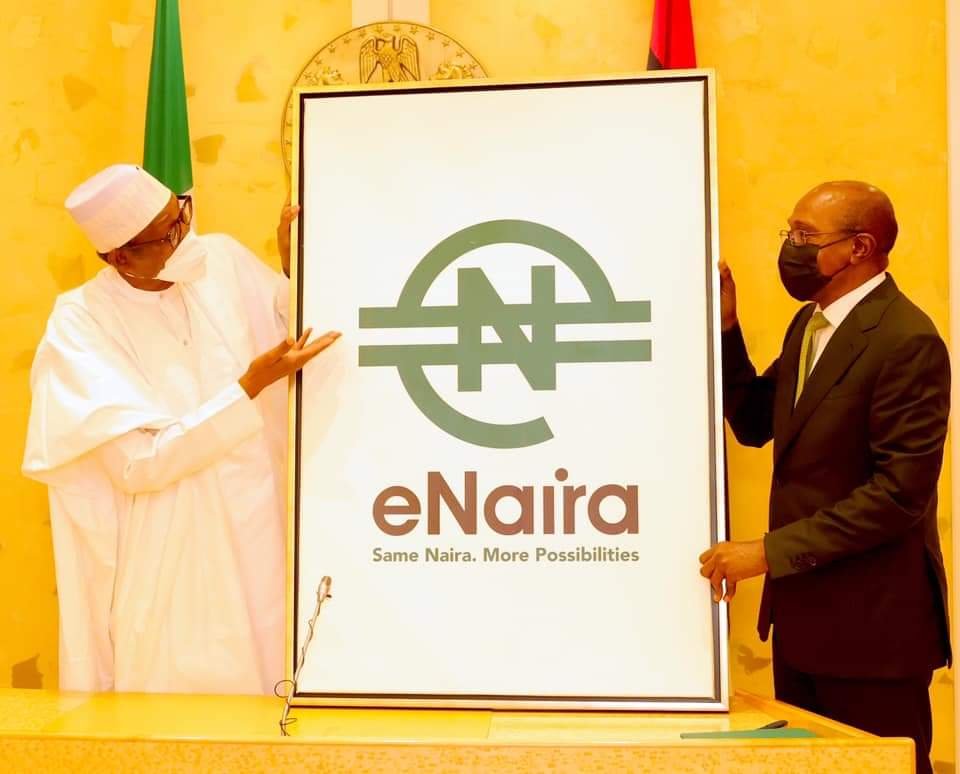
Buhari accompanied his captors, initially to Bonny camp from where he was later moved (under House Arrest) to 1 Hawkesworth Road, Ikoyi. He was there for less than a week before being moved again to a house in Benin City. The deposed head of state had access to a television that showed just two channels and members of his family were allowed to visit him only on the authorisation of Babangida. In 1988, he was released and at the dawn of the Fourth Republic, he ventured into the Nigerian political scene before becoming Nigeria’s fifth executive president at the fourth time of asking on May 29, 2015.
A Change Indeed
In 2013, the Congress for Progressive Change (CPC), the Action Congress of Nigeria and the All Nigeria People’s Party (ANPP) merged their parties to form the All Progressives Congress (APC).
While the ruling party, the PDP contended with internal squabbles, the APC waxed stronger, welcoming new members who had defected from their parties, the majority of them from the PDP.
The APC presidential primary for the 2015 elections was conducted in a credible and transparent setting and was also televised live for all to monitor.
Four candidates were vying for the position but Buhari emerged victorious as the party’s flag bearer and a foremost lawyer and Senior Advocate of Nigeria, Professor Yemi Osinbajo, was chosen as his running mate.
The APC’s popularity grew steadily compared to the PDP whose hold on the country had started to wane. The failures of the government were brought to the precipice and Buhari promised a new beginning for the country.
“Change” became the motto of the APC and it was widely advocated on billboards, at campaign rallies, on television through documentaries and in newspaper advertorials.
Social media was not left out. Facebook and Twitter proved to be very effective tools in gaining awareness, especially among the youth.
Apart from engaging in personality attacks against the opposition, especially Muhammadu Buhari, the PDP had a lot of misses with their adverts. An example was the disastrous “Bring Back Our President” which was a parody of the “Bring Back Our Girls” hashtag. The Presidency quickly dissociated itself.
The height of it all was when the First Lady, Patience Jonathan while campaigning on behalf of her husband in Calabar, Cross River State, asked voters to throw stones at anyone who talked to them about change.
The APC swiftly reported the issue to the International Criminal Court and the National Human Rights Commission cautioned against making hate speeches.
Running a more responsible campaign that capitalised on President Jonathan’s weaknesses and that of the PDP, the APC slowly warmed their way into the hearts of Nigerians.
Riding on the back of his achievements while he was Head of State, Buhari was presented to all as an incorruptible and disciplined man compared to President Jonathan whose government was described to be very corrupt.
Buhari promised to provide five million jobs and four million homes through a flexible mortgage plan, fund small and medium-scale enterprises, and invest in entertainment, agriculture, information technology, manufacturing and infrastructure in the six geopolitical zones in the country.
Affordable food supply, uninterrupted power supply and improvement in the educational sector were also part of his campaign promises.
Nigerians happily lapped all these promises and stood solidly behind the retired general who proclaimed himself a converted Democrat.
Postponing the election dates also helped to sway support from the PDP to the APC. The Independent National Electoral Commission (INEC) headed by Professor Attahiru Jega were on their toes, and accrediting voters while biometric voter identification was introduced.
Election Day finally arrived on March 28, 2015, and despite some hitches, it was a more peaceful and smoother process than had been witnessed in the country and large turnouts were recorded.
INEC collated the votes over three days which was televised to inspire trust and confidence in both the incumbent and the opposition and show transparency of the process.
Voting concluded on March 29 and results began to stream in with the APC in the lead.
This was not unusual as the same had happened during the 2011 elections with the opposition leading before the PDP caught up and overtook the CPC by large margins.
However, the same scenario did not play out in 2015 as the APC maintained their lead in both the Presidential and legislative elections.
By the third day, tensions had begun to rise as the PDP supporters tried to frustrate the collation process by protesting on live television and accusing the INEC Chairman of bias and tribalism.
Former Minister of the Niger Delta, Godsday Orubebe, spearheaded the protest as APC’s comfortable lead became worrisome.
In the end, the APC polled 53.96% of the total votes while the PDP polled 44.96%.
After 30 years, Buhari had the opportunity to once more rule Nigeria, but this time as a democratically elected official.
Buhari’s First Term
Buhari was the first opposition candidate to defeat an incumbent as President in Nigerian history. Like Olusegun Obasanjo, Muhammadu Buhari holds the distinction of ruling Nigeria both as a military dictator and a civilian leader.
His “I belong to everybody, and I belong to nobody” statement formed the basis of his inaugural speech on May 29, 2015.
His choice of words indicated his gratitude to Nigerians for believing in him enough to vote for him and assured the citizens of his willingness to serve and fulfil his campaign promises which were summarised into three major points which were fighting insecurity, tackling corruption and reviving the economy.

The new president promised a responsible and accountable government at all levels in the country, adding that Nigerians would not regret voting for the APC.
He also thanked President Jonathan for his statesmanship in setting a precedent by humbly accepting defeat and handing power over peacefully.
Welcoming him into his new role as the country’s number one citizen, Nigeria showed signs of heading into recession just one month later.
At first, the economic performance increased in 2015 but 2016 was the year the country went into recession. The story changed in 2017 but the economy was still quite shaky up until 2019.
Realising that state workers were not paid, President Buhari embarked on bailout programmes, giving lifelines to State Governors to enable them to pay the backlog of salaries being owed.
He also instituted a well-coordinated program to disburse the Paris Club refund.
Financing options available to the country were diversified by the President and he opted for Sukuk to finance road projects all over the six geopolitical zones in Nigeria.
In 2017, 10 new standard rail gauge routes were identified in President Buhari’s rail development plan, and the agriculture sector received a huge boost as the Central Bank of Nigeria (CBN) through the Anchor’s Borrowers’ Program (ABP) supported rice farmers.
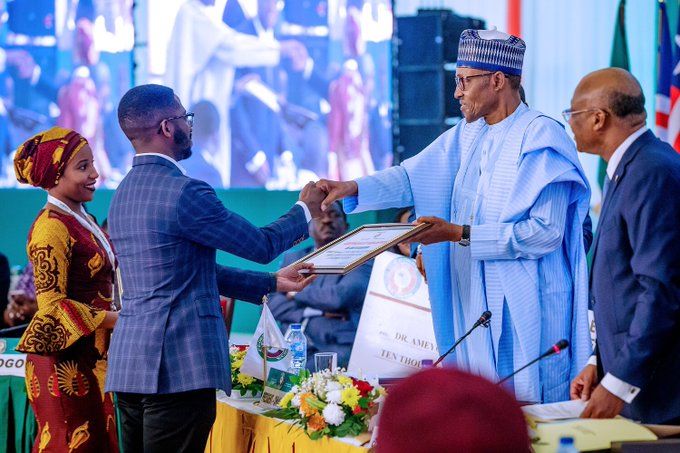
Although violent clashes between herders and farmers overshadowed this significant investment.
The federal government also introduced a school feeding programme to boost enrolment.
The N-power programme was rolled out to absorb unemployed graduates and participants were transferred to primary and secondary schools in all the 774 local government areas in the country.
All of these achievements paled in comparison to realities evident all around the country. The rate of unemployment was on the rise, foreign reserves dipped, and inflation was affecting the prices of goods and services while insecurity caused by banditry and terrorism persisted.
Nigerians were beginning to lament the “change” they had been promised.
Apart from the somewhat economic woes, President Buhari’s health was a source of concern. In June 2016, he travelled to the United Kingdom for a medical checkup. He also did the same in January 2017.
Both times, his Vice, Professor Yemi Osinbajo acted in his stead as President.
Buhari’s Second Term
Despite the outcry from the people, Buhari contested elections for a second term in 2019 and was re-elected after defeating Atiku Abubakar of the PDP, winning in 19 states while Atiku was victorious in 17.
The PDP rejected the results accusing the APC of manipulating the votes.
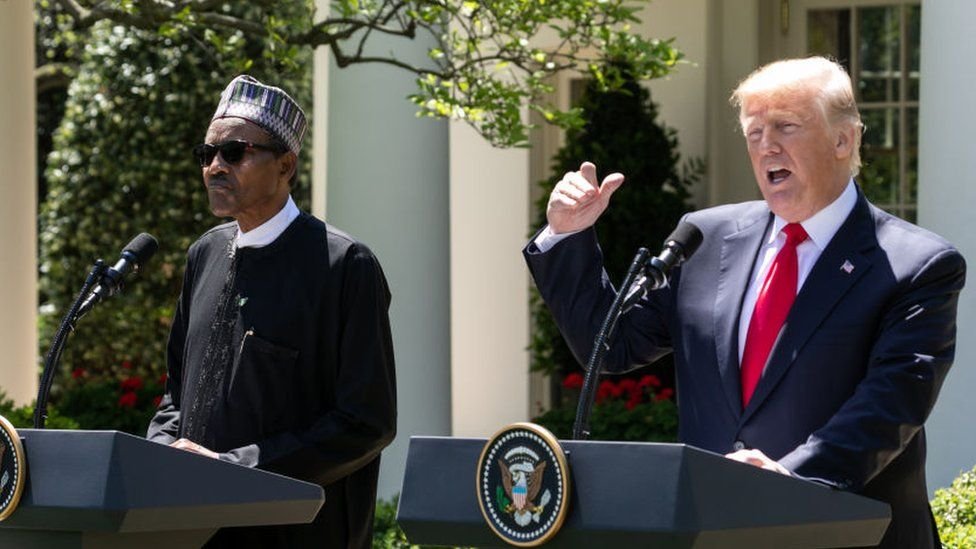
There were concerns over the conduct of the administration like the harassment of judges and the suspension of the Chief Justice of Nigeria, Walter Onnoghen, just before the election and alleged colluding with the electoral body to rig the polls.
Electoral violence which had previously waned in the last general elections reared its ugly head again and there was a low turnout of voters due to the populace having no faith in the country anymore.
Insurgents in the Northeastern part of the country, Boko Haram, seemed to have reinforced their efforts in causing terror across the region as there was an increase in banditry and kidnapping as they freely attacked villages and schools without any restrictions.
In October 2020, the “END SARS” protest happened.
On June 5, 2021, Buhari banned the social media platform, Twitter, for seven months and his naira redesign campaign just a few months before the 2023 elections led to cash scarcity and unnecessary hardship among Nigerians.
During his 2015 campaign, Buhari rebranded himself as a democrat committed to the rule of law and economic recovery. His 2015 win marked the first peaceful transfer of power from one political party to another in Nigeria, cementing his new image.
However, the “converted democrat” did not fulfil the campaign promises he made eight years before. In fact, Buhari left the nation worse than he had met it and performed below par compared to his predecessors – Olusegun Obasanjo, Umaru Musa Yar’Adua, and Goodluck Jonathan.
Nevertheless, on May 29, 2023, Muhammadu Buhari handed over the reins of government to his successor, Bola Tinubu, who had won the presidential election because of a divided opposition.
Please stay connected with us through our social media handles and make sure you are subscribed to our YouTube Channel. Together, let’s keep the stories of Nigeria’s past alive.
Leave a Reply
You must be logged in to post a comment.


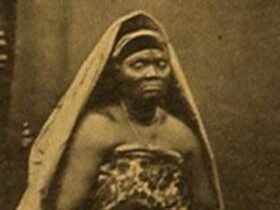
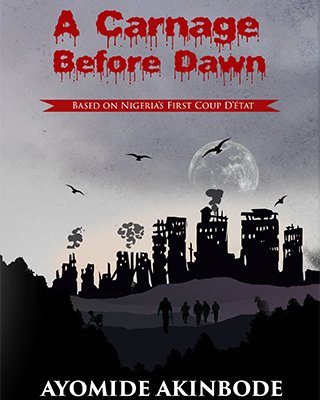



Leave a Reply
View Comments